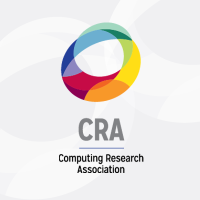NSF Extends Application Deadline for CSGrad4US: Third Year of NSF Fellowship Opportunity for CISE Bachelor’s Degree Holders to Return for PhD – Due June 26

The National Science Foundation (NSF) Computer and Information Science and Engineering (CISE) Directorate recently announced that applications are now being accepted for the third year of the CSGrad4US Graduate Fellowship program. The 3-year fellowships support new Ph.D. students pursuing their degree in a CISE field which includes programs in Computer Science, Computer and Information Sciences, and Computer Engineering. The fellowship was released in response to the increased demand for people with a Ph.D. in computer science (CS), the continued decrease of domestic students pursuing research and completing a Ph.D., and the overall small number of bachelor’s degree recipients in CS pursuing graduate school. In particular, the percentage of domestic Ph.D. students in CS graduating has decreased from 69% in 1985 to 37% in 2018.[1]
Benefits of Graduate School
Many who complete a bachelor’s degree in computer science, computer engineering, or information science enjoy lucrative and exciting jobs in industry after graduating; however, pursuing graduate education can open new doors– and not just to a professorship at a university. The skills acquired in earning a Ph.D. prepare you to develop ideas that can benefit your research field and society, while helping to create a path to leadership positions within the tech industry.
One of the biggest challenges of getting into graduate school is finding an experienced mentor to guide you through the process: preparing the materials, researching different programs, and finding funding for the right program. To help with this challenge, the U.S. National Science Foundation created the CSGrad4US Fellowship, which aims to increase the number and diversity of U.S. citizens, U.S. nationals, or U.S. permanent residents pursuing graduate research and subsequent careers in computer science and engineering. The fellowship is also an opportunity for those already working in industry or other sectors to return to academia to pursue a research-based doctoral degree.
In the one-year program, CSGrad4US Fellows work with faculty mentors who help them figure out which grad program is right for them, network with other mentors and fellows, and learn how to apply to graduate schools. After enrolling in a CISE doctoral program, CSGrad4US Fellows receive a stipend of $37,000 per year for three years out of five, plus a cost-of-education allowance of $16,000 per year for those three years.
A diverse cohort of CSGrad4US fellows will be selected based on their demonstrated interest and potential to pursue a Ph.D. in one of the CISE fields: computer science, computer engineering, or information science.
Eligibility
CSGrad4US Fellowship applicants must meet the following eligibility criteria:
- Be a U.S. citizen, national, or permanent resident;
- Intend to apply for full-time enrollment in a research-based doctoral degree program in a CISE field no later than Fall 2025;
- Have graduated with a bachelor’s degree before December 31, 2022;
- Have not been enrolled in any degree-granting program after January 1, 2023;
- Have demonstrated CISE core competency;
- Never enrolled in and have no pending application for a doctoral degree-granting program for a CISE discipline at the time of the application; and
- Have never previously accepted a NSF Graduate Research Fellowship.
NSF seeks candidates from a broad array of backgrounds and strongly encourages women, Blacks and African Americans, Hispanics and Latinos, American Indians, Alaska Natives, Native Hawaiians, Other Pacific Islanders, and persons with disabilities to apply.
Timeline
The Application deadline for the CSGrad4US Graduate Fellowship has been extended. Applications, including reference letters, must be received by 11:59 p.m. Eastern time on June 26, 2023. Applications will not be accepted after the deadline.
[1] Addressing the National Need for Increasing the Domestic PhD Yield in Computer Science. Susanne Hambrusch, Lori Pollock, Ran Libeskind-Hadas, and Christine Alvarado, Quadrennial Paper, CRA, November 2020.









